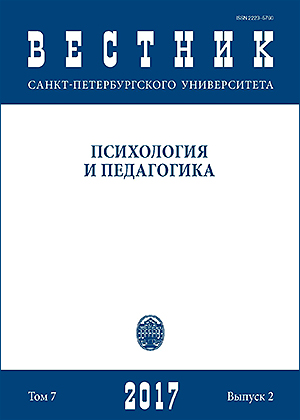Влияние установки о наличии конфликтных стимулов в тесте Струпа на величину интерференции
DOI:
https://doi.org/10.21638/11701/spbu16.2017.203Аннотация
Рассматриваются возможные интерпретации природы эффекта Струпа. Предполагается, что Струп-интерференция возникает в результате работы сознательного контроля над выполнением задачи игнорирования. Экспериментально проверяется (N=90) гипотеза о том, что интерференция возникает в том случае, когда у испытуемых есть возможность сделать ошибку, т. е. дать ответ, соответствующий игнорируемому параметру Струп-стимула. Результаты показали, что, если такой возможности нет, уровень интерференции снижается как следствие уменьшения контроля задачи над игнорируемым заданием.
Ключевые слова:
интерференция, эффект набора ответов, контроль задачи, интерференционная ошибка, эффект Струпа
Скачивания
Библиографические ссылки
Литература
References
Загрузки
Опубликован
Как цитировать
Выпуск
Раздел
Лицензия
Статьи журнала «Вестник Санкт-Петербургского университета. Психология» находятся в открытом доступе и распространяются в соответствии с условиями Лицензионного Договора с Санкт-Петербургским государственным университетом, который бесплатно предоставляет авторам неограниченное распространение и самостоятельное архивирование.




